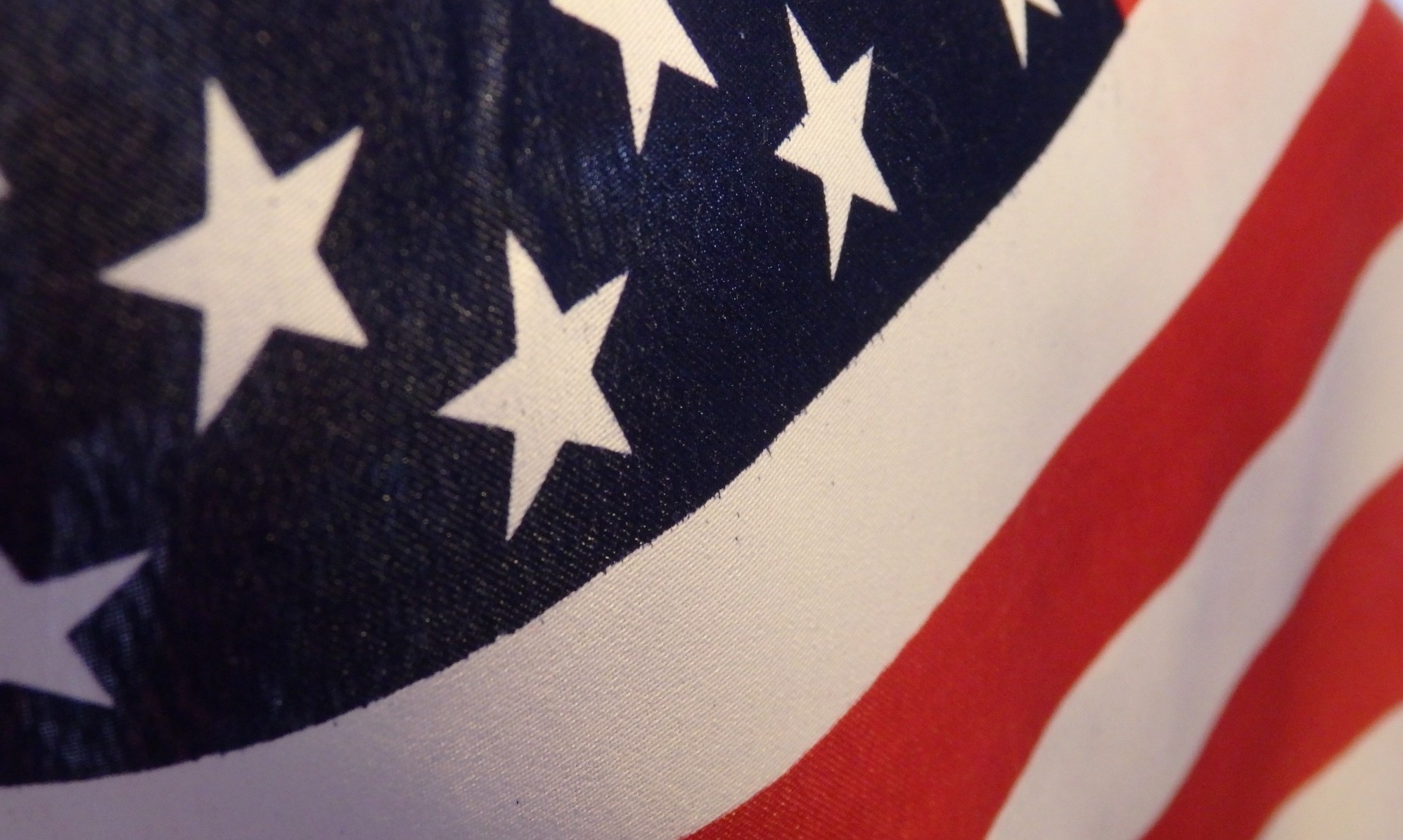Watching America Fall Apart on my Renunciation Anniversary
One year ago today, I renounced my US citizenship.
Here in the Netherlands, since last week’s US elections, friends and colleagues often ask me “Are you glad you gave up citizenship?”

I always say “Yes!” but that’s a lie. I didn’t want give up citizenship then, and I still feel sad that I had to do it.
I am, however, glad that I wasn’t in the US for this election cycle. The level of hateful, hurting rhetoric and plain old bald-faced lying was higher than I’ve ever experienced. Here at home, all that reached me was the highlights on the news, and sometimes I chose not to even hear that.
A year later, what I mostly feel, besides the continuing sense of grief at having renounced, is fear: fear of what I see happening in the US.
The three things I am most concerned about are long-term issues.
Changing the Rules
On Facebook, I’ve noticed various stories and petitions doing the rounds that address the Electoral College. Some call for the Electors to change their votes. The idea is that they should vote for the candidate who got the most votes nationwide (Clinton), even if their state was a red state and they’re expected to vote for Trump.
This would be a form of civil disobedience against an unjust law. It’s okay to break a law if that law is unjust. Look at the lunch counter sit-ins or the Freedom Rides of the Civil Rights movement in the 1950s and 60s.

The difference, though, between then and now is that the Electoral College system was not unjustly thrust on the left to oppress the left. It’s been there since the Constitution was written in the 18th century, and could have been changed by Constitutional amendment at any time since then.
Getting electors to change their votes is a short-term attempt to bypass “fixing” the Electoral College: an amendment to the Constitution. Adding an amendment would be a long, hard-fought process, especially now, with Republicans dominating Congress. After all, the Republicans have benefitted twice recently from the existence of the Electoral College and won elections in which they actually lost the popular vote. Why change a system that works for them?
Neither campaign—to change the electors’ votes or to add an amendment to the Constitution—will happen in time to change the outcome of this election. Yet many on the left are calling for desperate measures to change the result anyway.
That scares me. If Americans feel it’s okay to circumvent elections in this case, what makes it any different the next time people are dissatisfied with the result? It would be a very bad precedent to set.
It’s also just wrong. You played the game, knowing the rules. Al Gore lost back in 2000 based on Electoral College votes, even though he won the popular vote. Why wasn’t this addressed after that election?
You knew this could happen. It’s wrong to try to change the rules after you’ve lost.
And if you change the rules when they don’t suit you, you’re no better than some petty (or not so petty) dictator who gets “elected” and then changes the constitution to make himself “president for life.”
Instead, work on changing the rules in time for the next election.
Division
Election years have always been nasty times, full of divisiveness and negative campaigning. It’s never been as bad as this year, though, at least not in my lifetime.
The problem now is that the divisiveness goes deeper because it happens over social media. On Facebook, for example, it’s easy to “unfriend” people who express opinions you disagree with. I’ve unfriended or unfollowed people who supported Trump.
What we’ve ended up with is a situation where people only hear people they agree with. They watch the news shows that support their own side; an independent press has been another casualty of this race. They happily bash the other candidate, knowing their friends agree. No one hears the other side.
The result is what happened on Election Day. The left, especially, was taken completely by surprise that Trump won. And they seem to be having a helluva time figuring out why Trump won.
Trump won because no one is listening to anyone else, especially across class lines, party lines, and ethnic lines. Also, the urban-rural divide is wider than ever, and the urban pundits stopped hearing the rural voice.
That urban-rural division is especially harmful. This is not a situation like the Civil War where the differences were geographical: south vs. north. Look at the maps CNN showed on election night: the red states were red in the country and blue in the city. So were the blue states. The only difference, as far as I could see, was that the blue states have bigger urban populations. This gap has to be addressed, and it’s especially the Democratic Party that has to address it.
Hate speech
I’m convinced that racism, anti-Semitism, misogyny, homophobia, and anti-Muslim and anti-immigrant sentiment haven’t increased in the US. They’ve always been there. What has changed is that it has become acceptable to voice hateful thinking.
One of the accepted explanations of Trump’s victory is that the white working class didn’t feel listened to. Listening to them is not the same as accepting hateful ideologies. It is necessary, though, to listen to them in order to counter those ideologies in a way that convinces, rather than condemns.
The Democratic Party should not accept the racism, anti-Semitism, misogyny, homophobia, anti-Muslim or anti-immigrant sentiment of the right as if it’s normal. Neither should the Republican Party. These are not American values.
However, dismissing people as “bigots” and refusing to hear them doesn’t help them stop being bigots.
Dialogue between left and right, between ethnic groups, between working and middle class, and between urban and rural is the answer. It’s ironic that Americans’ ability to carry out the dialogue has decreased so much in a time of constant connectivity via social media. In the sphere of politics, this lack of dialogue is what leads to political stalemates and the total inability to reach compromises.
These three trends—the willingness to change the rules, the hardening divisions between segments of society and between urban and rural, the increasing acceptance of hate speech—are the sorts of slippery slopes that lead to massive government change toward dictatorship. See 1920s and 1930s Germany.
I sincerely hope that my nation of birth can tackle these obstacles to become the nation of justice and equality that it is meant to be.
Where do I stand one year after my renunciation day? I feel sad, personally, but also worried on a larger scale. I sit here in Europe, watching the US fall apart in acrimony and bitterness, and I fear for its future.
Please feel free to add comments below, but please make comments in the spirit of dialogue: keep it civil!
My whole US citizenship series:
- Part 1: Giving up US citizenship?
- Part 2: Republicans, expatriates, and FATCA
- Part 3: How my citizenship hit me in the gut
- Part 4: My renunciation day
- Part 5: Thanksgiving reconsidered
- Part 6: FATCA, the Tea Party, and me
- Part 7: Individual freedom, self-reliance and renunciation
- Part 8: Equality? Competition? Not overseas!
- Part 9: The American Dream
- Part 10: The irony of renouncing under duress
- Part 11: Open letter to President Obama in response to the State of the Union Address
- Part 12: 7 Reasons NOT to renounce
- Part 13: Citizenship matters
- Part 14: Citizen of a parallel world
- Part 15: Renunciations in the news
- Part 16: Vote … as a non-citizen? Really?
- Part 17: The ridiculous story of a pilot and his taxes
- Part 18: On receiving my Certificate of Loss of Nationality
- Part 19: So you think you want to emigrate…
- Part 20: Indignation Fatigue and FATCA
- Part 21: The US election, as seen by Americans overseas
- Part 22: On receiving my California voter ballot
- Part 23: Watching America fall apart on my renunciation anniversary



Rachel, it’s everything you said, but on this side of The Pond it feels so much worse. After every national election, you hear roughly half of Americans say, “I want my country back.” Yes, there are 2 Americas. P.S.: I want my country back.
Rachel,
Americans have to learn to talk and listen to each other again. It’s critical for the survival of the country as a whole.
Trump isn’t going to turn someone into a racist or mysoginist who isn’t already one. Flush them out so we can engage them in dialogue. I don’t think there’s a threat that they will persuade others to join them in their point of view, but there’s always a chance you might change theirs. Keeping racists and mysoginsits marginalized won’t get rid of them, education and encouraging empathy on their part will. Just as you lose any opportunity to find common ground to work from when you unfriend someone.
I agree! In a way this whole process (and the #blacklivesmatter movement) have had a good effect: many whites who were not aware of their white privilege have now become more aware. That’s a good thing, and keeping that dialogue up will help more people understand.
Thanks Rachel, for your heartfelt sharing. I was in the US from late Sept to late Oct and it was hideous! The “debates” were jokes and each side seems to live in an echo chamber–yes, clearly sides.
Just when you think an election can’t get worse (i.e., Sarah Palin), it does. It’s a worrisome trend towards nationalism and the hard right not only in the USA but also elsewhere in the world. E.g., France could break up the EU if it goes for Marine le Pen, Sisi in Egypt is barely disguising his nationalism as a paternal figure. I have always felt the USA should lead by example as it has done for so many things in the past – just not this time in this ideology.
It’s happening here too, with Geert Wilders.
“The only thing we have to fear, is fear itself.” I didn’t unfriend anyone, though I was certainly disappointed in some. We can’t ignore other points of view no matter how backward or dangerous or offensive they seem. There are real underlying problems that are driving these attitudes. These problems must be addressed and we have to listen to Trump voters in order to understand. Being afraid is useless.
I completely agree. At the same time, listening can’t always mean just agreeing to disagree, particularly when it comes to racism, homophobia, etc.
Hi Rachel,
I did not realize you had renounced your citizenship. Lot’s of expats are doing that. Do you share about why you chose to do that or do you keep that personal? I am moving back to CH early this spring. If all goes well I have no intention of ever moving back to the US, but I would like to know a lot more about the benefits vs. the consequences of retaining or renouncing my citizenship. Do you have any book or Website suggestions fro more information?
Here on my website there’s a whole series I wrote as I made the decision. Click on expat life on the menu at the top and then on fatca and read them in chronological order.
The key thing is to make sure you have citizenship or at least nationality in the country in which you reside, FIRST, or contemporaneously; you don’t want to end up stateless.
After that, I have always been of the view that it is undesirable to hold the citizenship of a country you have no intention of living in. It merely gives the country you are a *true* citizen of excuses to deport you, which has happened even to Canadians with accidental American citizenship (and the US has behaved far worse to dual citizens of other countries).
Good point. Fortunately I had already received Dutch citizenship long before FATCA happened. I used to think having two citizenships was a good thing …
Thanks for the thoughtful post, Rachel. I too feel like the US is falling apart and that even carrying on a civil conversation with a Trump supporter is impossible because the gulf is so wide. And watching Trump appoint his bottom-feeder cronies is even more disheartening … We’ve had several friends in Portugal express their disbelief and dismay at what’s going on, too. Regardless of what the “Grand Old Party” thinks, this election will have global significance and repercussions and the world is watching …
I think most Dutch people are watching it more closely than I am! I just find it all so painful to watch that I’ve been avoiding the news lately, or only taking it in very small doses. Disheartening is a good word for it. It’s good to see, though, that many in the US seem prepared to continue fighting the good fight.
You’re absolutely right Rachel!
It was shocking to see th results of the US election but I totally agree, don’t try to change the results. That’s democracy right there!
The same occured with Brexit which concerns me directly, being British of course. And because I’m British, and tend to do TV and radio stuff about the British stuff (the monarchy), I was asked by the Germans about what we’re going to do about it. I said that we should do absolutely nothing because, the elction has already been conducted. We (Remain) lost, and we all have to live with it.
After all, squabbling and fighing over “change the law” is exactly what brought Hitler to power. I live in Germany, and I feel that pain of fear. Interestingly, the only sane voice right now is that of Angela Merkel (Germany), and even though I’m a liberal through and through, when the time comes for us to vote in the next election, if she stands again, I’ll vote for her!
Very interesting to hear this from your British point of view. I don’t think there’s anything wrong with trying to change the law for next time, though. Just not after the fact.
Hi Rachel,
You feel sad about America? Have you not been traumatized and degraded by the Obama regime yourself?
How about feeling sad for the EU! Germany, Sweden etc have taken in hundreds of thousands of refugees caused by the US wars in the Middle East. The Americans pay nothing, and Europe has terrorism and populist backlash, which is wreaking social havoc.
Besides FATCA which hunts individuals, the DOJ goes after every financial institute in Europe.The sovereignty of Switzerland has been completely ignored and one bank after another fleeced and forced to agree to ridiculous penalties. Deutsche Bank, FIFA, Volkswagen, Barkleys and soon to follow Bank of Scotland are just some more. Endless sanctions against Iran or Russia have to be acquiesced to by all of Europe even though they hurt their repective economies endlessly.
You talk about the schism in the US between the left and the right. The Democrats are Left? I would consider Jill Stein of the Greens left. Obama and Clinton are what used to be considered moderate Republicans. Here is a new short article explaining how trump won the election.
https://www.truthdig.com/articles/barack-obamas-neoliberal-legacy-rightward-drift-and-donald-trump-2/
Finally here are three short videos explaining in a comical way what is going on:
https://www.youtube.com/watch?v=GsYzEHh00-g
https://www.youtube.com/watch?v=DrqAUebq6Ic
https://www.youtube.com/watch?v=hPEOYfzEdlc
I hope you find a few things interesting, even if you dont agree with them.
Regards,
Eddy
I’m not nearly as anti-Obama as you are, or as the author of that article or the guy in the 3 videos (who, by the way, could use some coaching in public speaking). I agree that the Democrats have shifted to the right more than they should, but I was using the terms “left” and “right” as they’re used in the US. Here in the Netherlands, you’re right, the Democratic party would be center or even center-right. Nevertheless, the schism is there, whether there’s a big difference between the two parties or not.
I agree with you that the DOJ is going after all of the banks as part of the whole citizen-based taxation effort, but I disagree with you about “social havoc” in Europe. Europe has struggled with taking in so many refugees, no doubt about it, but that will work itself out, as it has in earlier refugee waves. They’ll end up settling in and becoming part of their new country eventually, or their children will. That doesn’t imply social havoc. In any case, I feel much safer here than in the US — look at the recent attack in Fort Lauderdale. Stuff like that happens so often there that it hardly makes the news.
Rachel,
I am a native German who accepted the US citizenship 26 years ago, after living in the US for 19 years. Now, as of 10 years ago, I am back living in Germany. My renunciation appointment is in a few weeks. I can relate to your feelings of sadness and regret. Part of the reason I want to give up being an American, are the same as yours: I have lost my patriotism and feeling of an allegiance to the US. Yes, our former country IS falling apart and at least I don’t see any hope for recovery. I feel like holding on to US citizenship would be pure hypocrisy and I only regret that the system and politics have brought me here, but am glad that being a German citizen again will allow me to love and respect my country again.
Thanks for sharing your experience.
Thanks for sharing your story, Gitta.